Lisa Fan
In Plain Sight: Media Bias Through the Lens of Factual Reporting
Sep 05, 2019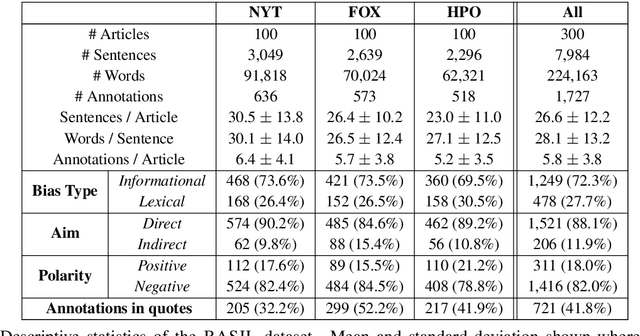
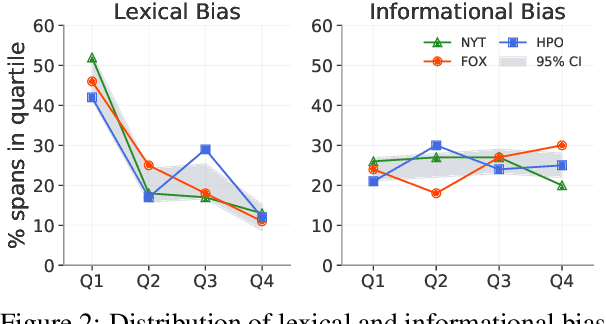
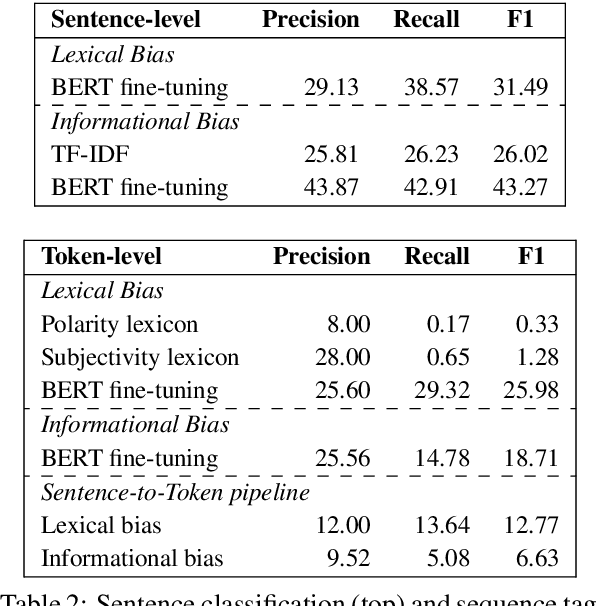
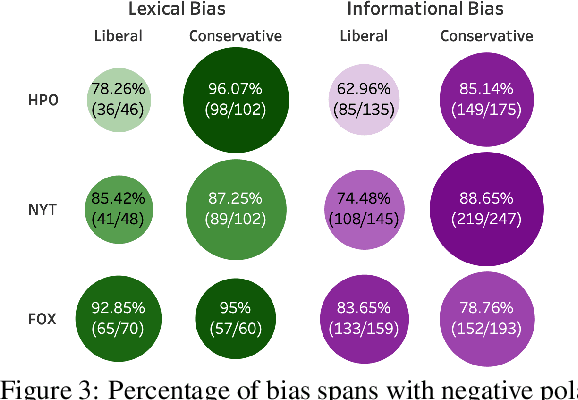
Abstract:The increasing prevalence of political bias in news media calls for greater public awareness of it, as well as robust methods for its detection. While prior work in NLP has primarily focused on the lexical bias captured by linguistic attributes such as word choice and syntax, other types of bias stem from the actual content selected for inclusion in the text. In this work, we investigate the effects of informational bias: factual content that can nevertheless be deployed to sway reader opinion. We first produce a new dataset, BASIL, of 300 news articles annotated with 1,727 bias spans and find evidence that informational bias appears in news articles more frequently than lexical bias. We further study our annotations to observe how informational bias surfaces in news articles by different media outlets. Lastly, a baseline model for informational bias prediction is presented by fine-tuning BERT on our labeled data, indicating the challenges of the task and future directions.
Robust Neural Abstractive Summarization Systems and Evaluation against Adversarial Information
Oct 14, 2018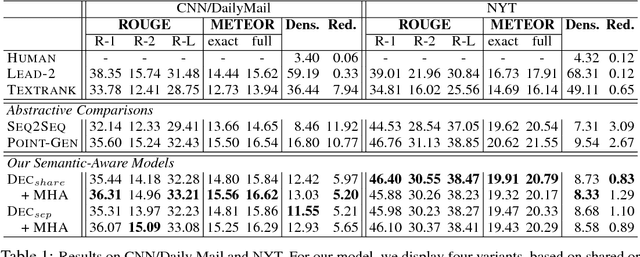
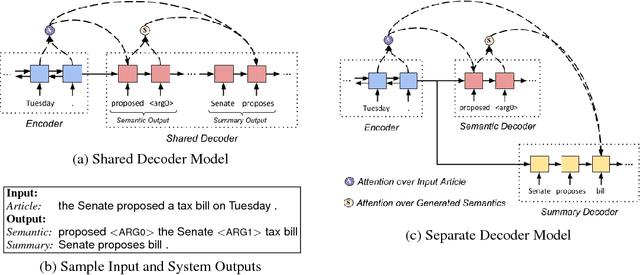

Abstract:Sequence-to-sequence (seq2seq) neural models have been actively investigated for abstractive summarization. Nevertheless, existing neural abstractive systems frequently generate factually incorrect summaries and are vulnerable to adversarial information, suggesting a crucial lack of semantic understanding. In this paper, we propose a novel semantic-aware neural abstractive summarization model that learns to generate high quality summaries through semantic interpretation over salient content. A novel evaluation scheme with adversarial samples is introduced to measure how well a model identifies off-topic information, where our model yields significantly better performance than the popular pointer-generator summarizer. Human evaluation also confirms that our system summaries are uniformly more informative and faithful as well as less redundant than the seq2seq model.
 Add to Chrome
Add to Chrome Add to Firefox
Add to Firefox Add to Edge
Add to Edge